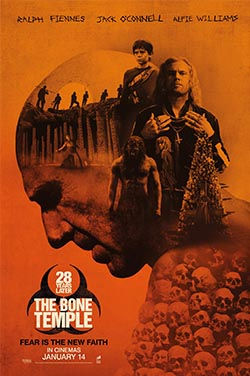The Pale Blue Eye Movie Review
- Rob Cain

- Jan 9, 2023
- 3 min read

Released: 6th January 2023 (Netflix)
Length: 128 Minutes
Certificate: 15
Director: Scott Cooper
Starring: Christian Bale, Harry Melling, Gillian Anderson, Lucy Boynton and Robert Duvall
Taking advantage of a slower, more thoughtful pace can add a great amount of depth to murder mysteries; the latest entry from the genre is The Pale Blue Eye, a historical piece with ties in with a major American writer. Not every element fits into the puzzle perfectly, but it does offer an interesting tale.

Based on the 2003 novel by Louis Bayard, TPBE concerns a murder investigation at the West Point Military Academy in the 1800s. Augustus Landor (Christian Bale) is tasked with finding the perpetrators and he partners up with a young Edgar Allan Poe (Harry Melling) to investigate. Between dinners with the high-ranking soldiers and autopsies of the murder victims, the men start to reveal the presence of occult horrors within the population. It’s very much a straightforward slow-burn that rarely pans away from the lead characters. You’ll be keen to see how the mystery unfolds, though the film does trip over some of its elements. Aside from a handful of interviews with soldiers and their superiors, the military aspect does become irrelevant by the final act. It needed improved incorporation of this narrative piece to tie in with the darker tone; instead it’s merely a backdrop.

What makes the film work are the two leads. Augustus Landor and Edgar Allan Poe are deep and memorable characters who learn a great deal about each other throughout the investigation. Landor is tormented by the loss of his daughter Matilda while Poe often feels out of place at the academy with his eccentric pastimes. Watching the two converse fuels a great amount of intrigue and as the plot goes on, the dramatic tension threatens to push them apart. The film places a lot of focus on the dialogue which often alludes to both poetry and comments on human nature. The duo is so strong that many of the other characters struggle to match their emotions and development. Timothy Spall as an oblivious superintendent and Toby Jones as the local doctor don’t have as much material to work with, despite the good performances. Robert Duvall is also there as an aging librarian and his role is incredibly miniscule. The two characters who do succeed in a side-role are Gillian Anderson and Lucy Boynton who pour out a lot of emotion as the film goes on.

In terms of atmosphere, The Pale Blue Eye relies on a minimalistic presentation. The cold winter at West Point lays on a creeping backdrop, one that underpins the darker deeds at play. While a small portion of the film is based in military discipline, the film is much better at portraying a lonely and often foreboding countryside. Landor himself is a resident of the area which clues you in to his mannerisms. The cinematography is slow and tenuous, often gradually revealing details through the fog as the characters search the rural areas. Things get especially grim when the occult enters the scene; brilliant lighting from torches turns the mood into something far more sinister. The music by Howard Shore is quiet and tense, speaking to the underhanded deeds at play; it complements the setting as well as the murders that take place. The movie also works surprisingly well in black-and-white for a more classical, old-fashioned feel. You’ll certainly be drawn into the film’s mist from the offset.
The Pale Blue Eye’s strong atmosphere and dedicated main performances make it an enticing mystery. Christian Bale and Harry Melling are both great from start to finish and the fascinating dialogue will keep you immersed. The militaristic grounding does get pushed into the background alongside some side characters, but it remains a successful and effective outing.
Rating: 3.5/5 Stars (Good)










Comments